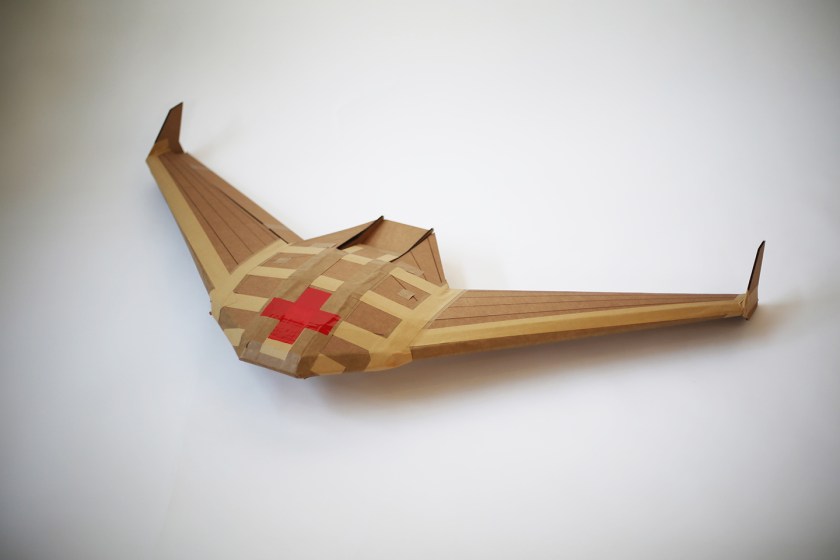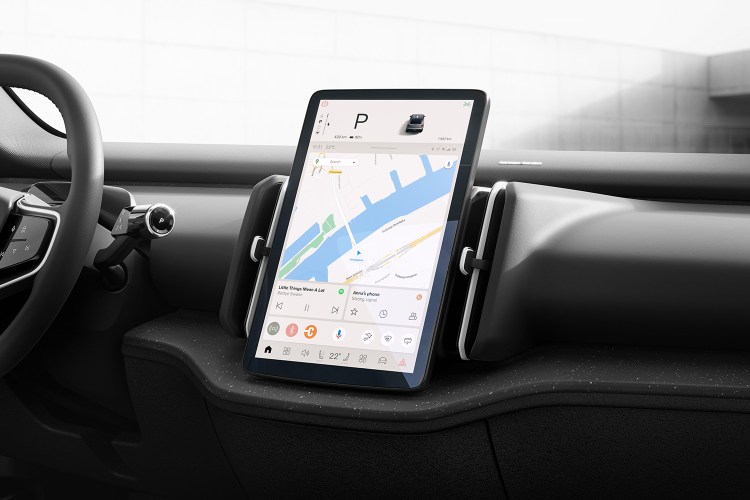
Medical instruments and other technologies produced in developed countries are often too expensive to reproduce in the developing world. Universities and nonprofit organizations have acknowledged this fact and sought to produce low-cost, high-impact alternatives—many of which are made in unconventional ways. Take a look at five examples below.
Cardboard Humanitarian Drones
Otherlab, a San Francisco–based startup that’s developed cutting-edge drones, received DARPA funding to develop “the world’s most advanced industrial paper airplanes” and create a high-tech supply drop (see above). “Aspara,” as the device is called, utilizes computational design techniques to create sturdy, cardboard gliders to deliver medical supplies such as vaccines and blood to areas in critical in need of them. The drones are deployed from a large aircraft like a C-130 (capable of holding hundreds), which factors in wind and speed to release each glider at the point where it can spiral down to land at a preset GPS location within 33 feet. Click here to learn more.
Popsicle Stick Tool for Heart Surgeries
A research collaboration between American and Indian students called Stanford-India Biodesign invented a device to help doctors in developing countries better implant pacemakers in their patients’ hearts. During surgery, doctors often have difficulty inserting the leads—small wires that carry an electrical current—into the heart, which could lead to the wires later becoming dislodged. The tool designed by Stanford-India Biodesign, made of popsicle sticks and a metal spring, provides surgeons with feedback as to how well the lead has been anchored into the patient’s heart tissue. Read additional info about the tool here.
Plastic Knee Replacements
Only five percent of amputees in developing countries such as India have their needs met, notes Dr. Pooja Mukul. She’s the technical director of a prosthetics clinic in Jaipur, India, that has partnered with D-Rev, a nonprofit product development company, to create a low-cost prosthetic knee joint for above-the-knee amputees in low-income countries. D-Rev offers a range of joint replacements made with plastic, but even its most expensive model, ReMotion, costs $80—a fifth of the price of a comparable product. For the nine million above-the-knee amputees in the developing world, this could be a game-changer. Click here for more info. Watch the TED Talk below to learn more.
Paper Centrifuge
Centrifuges, or machines that rapidly separate fluids, are critical pieces of laboratory technology, especially in developing countries where they can help detect diseases like malaria, HIV, and tuberculosis. Inspired by the whirligig, a children’s toy, Stanford bioengineers created a 20-cent centrifuge made of paper, twine, and plastic powered by humans (no electricity required). Blood is simply placed into a slot in the white disc (see below), and the “paperfuge” can separate plasma from red blood cells after about 90 seconds of rhythmically tugging on the twine. More info here.
Solar-Powered Medical Sterilizer
In developing countries, about 33 percent of patients suffer from infections at the site of their surgery—a rate nine times higher than in the developed world. Researchers at Rice University tackled this issue by creating the Sterile Box, an all-in-one, off-the-grid sterilization station inside a 20-foot shipping container. Sterile Box houses everything doctors and nurses might need to prepare surgical instruments for safe use, including a water system for decontamination as well as a solar-powered pressure chamber for steam sterilization. Because it’s self-sustaining, the sterilization unit could work anywhere, but its most effective in areas where there isn’t reliable electricity or safe drinking water like developing countries or post-disaster areas. Watch the video below, or click here to learn more.
—RealClearLife Staff
The Charge will help you move better, think clearer and stay in the game longer. Subscribe to our wellness newsletter today.
























